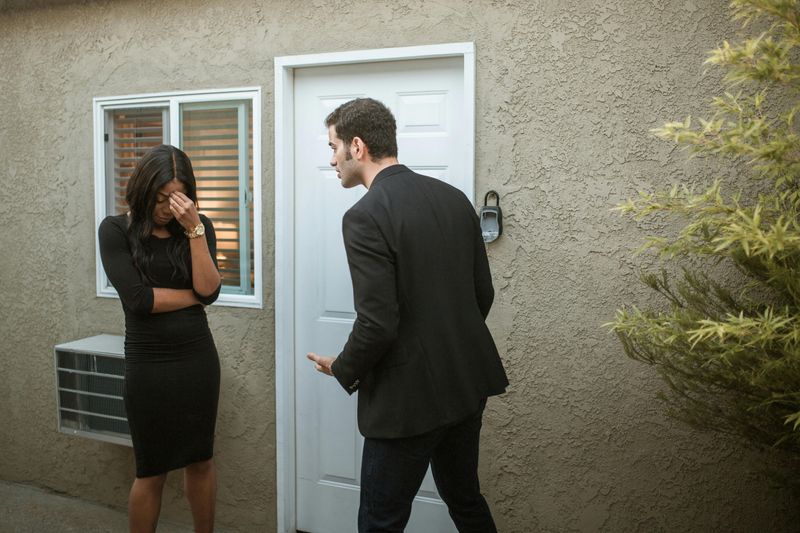10 Things People Say That Reveal They Don’t Value You

There’s a big difference between someone having a bad day and someone who simply doesn’t respect you. Words are powerful, and people who don’t truly value you tend to reveal that in what they say — often in subtle, everyday ways. These aren’t always explosive insults or obvious put-downs. Sometimes, they’re small, polished sentences that chip away at your confidence little by little.
1. You’re Overreacting

When someone throws this at you, what they’re really saying is, “Your feelings make me uncomfortable, so I’d rather not deal with them.” It’s an easy way to shut down a conversation and make you question your emotional response. Suddenly, you’re defending how you feel instead of why you feel it.
This phrase shifts the focus away from the behavior that caused the reaction and puts it back on you — making you the problem. It’s a subtle form of emotional control that trains you to stay quiet rather than risk being labeled as “too much.”
The truth is, everyone has a right to their emotional reactions. If someone truly values you, they’ll want to understand what’s behind them instead of invalidating them. People who care don’t minimize your feelings — they make space for them.
2. You’re Too Sensitive

This one stings because it sounds like feedback when it’s really an insult wrapped in concern. When someone calls you “too sensitive,” they’re saying your emotions are inconvenient for them. It’s not about your reaction — it’s about their unwillingness to face the impact of their words or actions.
Over time, hearing this repeatedly can make you question your own reality. You start to wonder if maybe you are too emotional, too soft, or too needy. But that’s exactly the goal — to make you doubt your natural empathy and intuition.
Being sensitive isn’t a flaw; it’s a sign you’re emotionally aware. The right people won’t use your sensitivity against you. They’ll see it as one of the best parts of who you are — not something that needs to be fixed.
3. I Was Just Joking—Relax

There’s a fine line between playful teasing and disguised cruelty, and this phrase usually crosses it. When someone hides behind “just joking,” they’re trying to make hurtful words seem harmless. It’s their way of saying something mean and then dodging responsibility for it.
You might laugh it off in the moment to keep the peace, but those comments add up. After a while, you start to feel like you can’t trust their tone — every “joke” comes with a sting attached. And if you speak up, you’re the one who “can’t take a joke.”
Healthy humor doesn’t come at someone’s expense. If they value you, they’ll make sure the laughter feels mutual — not one-sided. Because a real friend doesn’t need to disguise disrespect as entertainment.
4. You Should Be Grateful

This one often comes from people who think doing the bare minimum earns them endless appreciation. When someone says, “You should be grateful,” they’re trying to guilt you into silence. It’s not gratitude they want — it’s obedience.
This phrase turns your expectations into something unreasonable. You start feeling guilty for wanting more — more respect, effort, or basic decency. And that’s the trap: it keeps you in a cycle of accepting less than you deserve because you don’t want to seem “ungrateful.”
Genuine kindness doesn’t demand repayment. When people truly value you, they give freely because they care — not because they expect your constant gratitude in return. Appreciation is beautiful, but it should never be a weapon.
5. It’s Not That Big of a Deal

If it matters to you, it is a big deal — and anyone who values you will understand that. This phrase is a quiet killer of emotional trust because it tells you your feelings are exaggerated or unimportant.
It’s easy for someone to say that when they’re not the one affected. They’re minimizing your concern because it’s easier than taking responsibility. And the more you hear it, the more you start to downplay your own experiences just to keep the peace.
Validation doesn’t mean agreement — it means respect. A person who cares will say, “I see that this upset you,” even if they don’t fully get it. That small acknowledgment makes all the difference.
6. That’s Just How I Am

At first, it might sound like self-awareness, but it’s really an excuse in disguise. “That’s just how I am” is often code for “I’m not interested in changing, even if I’m hurting you.”
Growth requires humility — and this phrase proudly rejects it. People who say this use their personality as a shield to avoid accountability. It sends the message that their comfort is more important than your well-being.
Healthy relationships require effort from both sides. When someone values you, they don’t cling to toxic habits under the banner of authenticity. They do the work to meet you halfway — because love without growth eventually turns into indifference.
7. You’re Imagining Things

This line is one of the hallmarks of gaslighting — and it’s incredibly damaging. When someone tells you that you’re imagining things, they’re not only dismissing your feelings but also rewriting your reality.
You start questioning your memory, your instincts, even your sanity. And the more it happens, the easier it is for them to control the narrative. It’s not an argument anymore — it’s manipulation.
People who value you don’t make you doubt yourself. They listen, clarify, and work through misunderstandings. Because being seen and believed shouldn’t be a luxury — it’s a basic form of respect.
8. You’re Being Dramatic

This one has a way of sneaking into even small disagreements. When someone calls you “dramatic,” they’re implying that your emotions are exaggerated or unreasonable. It’s a subtle way of saying, “You’re the problem.”
Over time, this kind of comment teaches you to suppress your feelings. You start apologizing for crying, for being upset, for caring too much — all because someone convinced you your reactions were “too big.”
The truth is, expressing emotions doesn’t make you dramatic — it makes you human. People who care about you will want to understand what’s behind your feelings instead of labeling them as a performance.
9. I Don’t Have Time for This

Everyone gets busy, but when someone constantly says they don’t have time for you, what they really mean is they’re not making time for you. There’s a big difference between being busy and being unavailable.
This phrase dismisses whatever you’re trying to discuss — whether it’s a serious conversation or something that simply matters to you. It tells you your needs are an inconvenience in their schedule.
People who value you show up, even when it’s inconvenient. They make time for hard conversations because they care about the relationship more than their temporary comfort. If someone never seems to have time for you, they’re telling you exactly where you fall on their list of priorities.
10. It’s Your Fault I Acted That Way

This statement is manipulation in its purest form. When someone blames you for their behavior, they’re avoiding responsibility while making you question yours. It’s an emotional trick that keeps them in control.
You might find yourself apologizing for something you didn’t even do — just to smooth things over. That’s how blame-shifting works: it drains you of confidence and makes you feel like you’re always the one in the wrong.
People who value you take ownership of their actions. They don’t make you carry the weight of their choices. Accountability isn’t about being perfect — it’s about being honest enough to admit when you’re not.

Comments
Loading…